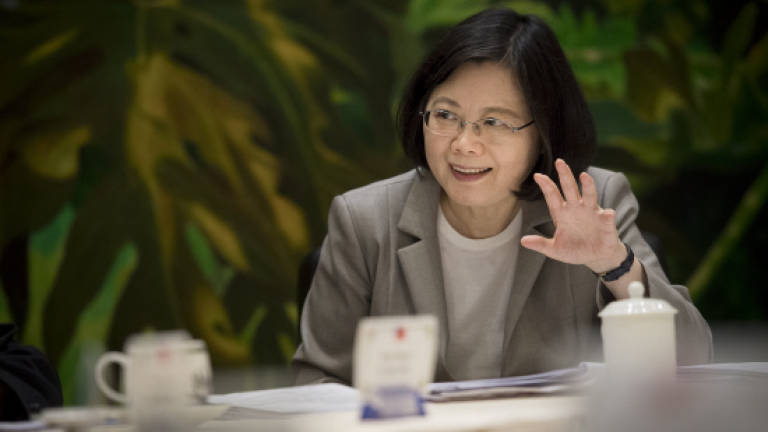Taiwan not in contest with Beijing

TAIPEI: Taiwan's New Southbound Policy (NSP) is aimed at strengthening its external economy and building more mutually beneficial relationships with the international community, and not a contest against China.
Stating that there are no conflicts between the NSP and China's 'One Belt One Road' initiative, Taiwan president Tsai Ing-Wen stressed that the policy is not about competing with China or making a political statement in the region.
"It is not about geopolitics. It is about economics and trade," she said, adding that it was rather about emphasising Taiwan's own advantages and promoting mutually beneficial development as a member of the regional community.
The NSP is Tsai's strategy aimed at enhancing boosting economic and trade ties as well people and cultural exchanges with the 10 Asean countries, Australia and New Zealand, and six south Asian nations -- India, Pakistan, Bangladesh, Sri Lanka, Nepal and Bhutan.
"It is not aimed at replacing the Chinese market or to engage Beijing in a regional contest," she said during a frank round table interview with foreign media journalists at the presidential office today.
In only her second engagement with foreign media since taking office in May last year, Tsai spoke frankly with six journalists from India, Singapore, Thailand, Indonesia, the Philippines and Malaysia, which was represented by theSun.
About 40% of Taiwan's exports currently go to China, while 20% are to NSP countries.
Tsai said the 10 Asean countries are important because together they form a powerful group, and together with India represents a huge market for Taiwan.
In terms of advancing economic development in the Asia-Pacific, Tsai said the NSP and cross-straits economic relations between Taiwan and China actually complement each other as they have different strengths and occupy different roles in regional development.
She said Taiwan enjoys immense soft power capabilities from its private enterprises, work in healthcare, education, human resource development, technological innovation, agriculture, and disaster preparedness, and this cannot be replaced or blocked by either money or politics.
The NSP initiated by Tsai soon after taking office on May 20 last year, is founded on sharing of resources, talents and markets and forms a major part pf Taiwan's overall external economic and trade strategy.
"We seek to expand institutional cooperation in trade, investment, science and technology, agriculture, tourism, SMEs and culture. This will help advance economic innovation, structural adjustment and sustainable development in the region," she said.
She stressed that although Taiwan has had past southbound policies emphasising developing markets and short-term business opportunities, the NSP is different as it is setting down long term policy agenda that focuses on wide ranging cooperation.
Tsai said based on Taiwan's competitive advantages, the cabinet is now drawing up detailed plans the next phase of the NSP which will focus on five major flagship projects, based on cooperation in developing:-
» industrial talent;
» medical industry related supply chains;
» innovative industries;
» regional agricultural development, and
» youth exchange platforms.
The flagship projects take into account Taiwan's soft power, particularly in healthcare, education, human resource development, technological innovation, agriculture, and disaster preparedness," Tsai said.
"They seek to share Taiwan's experience in areas that fulfill the needs of New Southbound countries, and contribute to both the development and well being of people across the region, as well as further our sense of community," she added.
Please also read :
http://www.thesundaily.my/news/2017/05/05/taiwan%E2%80%99s-nsp-showing-results
http://www.thesundaily.my/news/2017/05/05/more-opportunities-open-malaysians-study-taiwan
http://www.thesundaily.my/news/2017/05/05/it-has-been-challenging-first-year-president-tsai